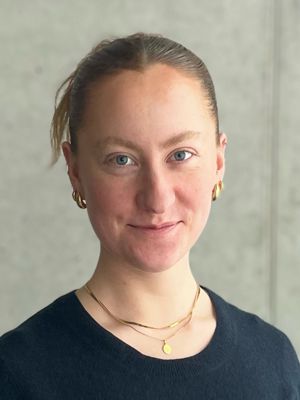Project B12 - Bioinspired Nanocomposites for Early Detection of Complications in Gastrointestinal Surgery

Gastrointestinal tract procedures are among the most common operations in visceral surgery. Around 0.6 and 1.8 million esophageal and colorectal cancer cases were estimated worldwide in 2018, respectively, most leading to surgical resection. Between 3-30 % of patients experience leakages in the connecting seam. The development of such anastomotic leakages carries the risk of sepsis, subsequent operations, prolonged hospitalization, and increased mortality of up to 16 %. The numbers are even higher in operations of the esophagus. Diagnosis of anastomotic leakages at the earliest timepoint is of importance to improve perioperative morbidity and mortality of our patients and do avoid further surgery. The aim of the project is to develop an in vivo diagnostic implant to detect the biomarkers involved relying on magnetically labeled synthetic receptors combined with a wireless magnetic-field readout system based on magnetoelectric sensors. The project has four parts:
- identification of suitable biomarkers,
- realization of a magnetic nanoparticle-based implant with a biomarker-concentration specific response,
- realization of a readout system based on magnetic-field detection, and
- validation of the approach on a cell assay.
The final is to continuously monitor for inflammation after surgery by detecting elevated levels of inflammation biomarkers for early detection of anastomotic leakages.
Involved Researchers
| Person | Role | |
|---|---|---|
 |
Prof. Dr. Zeynep Altintas Materials Science Bioinspired Materials and Biosensor Technologies |
Project lead |
 |
Dr. Jan-Paul Gundlach Medicine Clinic of General, Visceral-, Thoracic-, Transplantation- and Pediatric Surgery |
Project lead |
 |
Prof. Dr. Martina Gerken Electrical Engineering Integrated Systems and Photonics |
Project lead |
 |
PD Dr. Julius Pochhammer Medicine Clinic of General, Visceral-, Thoracic-, Transplantation- and Pediatric Surgery |
Associated researcher |
 |
M.Sc. Rahil Radfar Materials Science Bioinspired Materials and Biosensor Technologies |
Doctoral researcher |
 |
M.Sc. Lucie Bangert Electrical Engineering Integrated Systems and Photonics |
Doctoral researcher |
 |
Selma Leippe Medicine Clinic of General, Visceral-, Thoracic-, Transplantation- and Pediatric Surgery |
Doctoral researcher |
Role within the Collaborative Research Centre
This project will join focus groups F4 - Magnetoelectric Sensors for exchange on the latest developments of sensors as well as the group F6 - Biomedical Applications for exchange with the other application projects. This project will support the dissemination activities in SOP and the doctoral researchers will be active in the IRTG. The following specific collaborations are planned:
| Collaborations | |
|---|---|
| A4 (∆E-Effect Sensors) | ΔE-Effect sensors obtained from A4. Experimental results provided to A4. |
| A6 (Microstructure and Structural Change of Magnetoelectric Sensors) | MIPs-functionalized MNPs provided to A6 for TEM analysis. |
| A7 (Electrically Modulated Magnetoelectric Sensors) | Converse ME sensors obtained from A7. Experimental results provided to A7. |
| A8 (Modelling of Magnetoelectric Sensors) | Simulations on ensemble behavior of magnetic nanoparticles during biomolecular binding as well as system simulations obtained from A8. Experimental results provided to A8 for comparison with theory. |
| A9 (Surface Acoustic Wave Magnetic Field Sensors) | SAW sensors obtained from A9. Experimental results provided to A9. |
| B1 (Sensor Noise Performance and Analogue System Design) | Readout electronics developed in close interaction with B1. |
| B2 (Digital Signal Processing) | Digital signal processing developed in close interaction with B2. |




